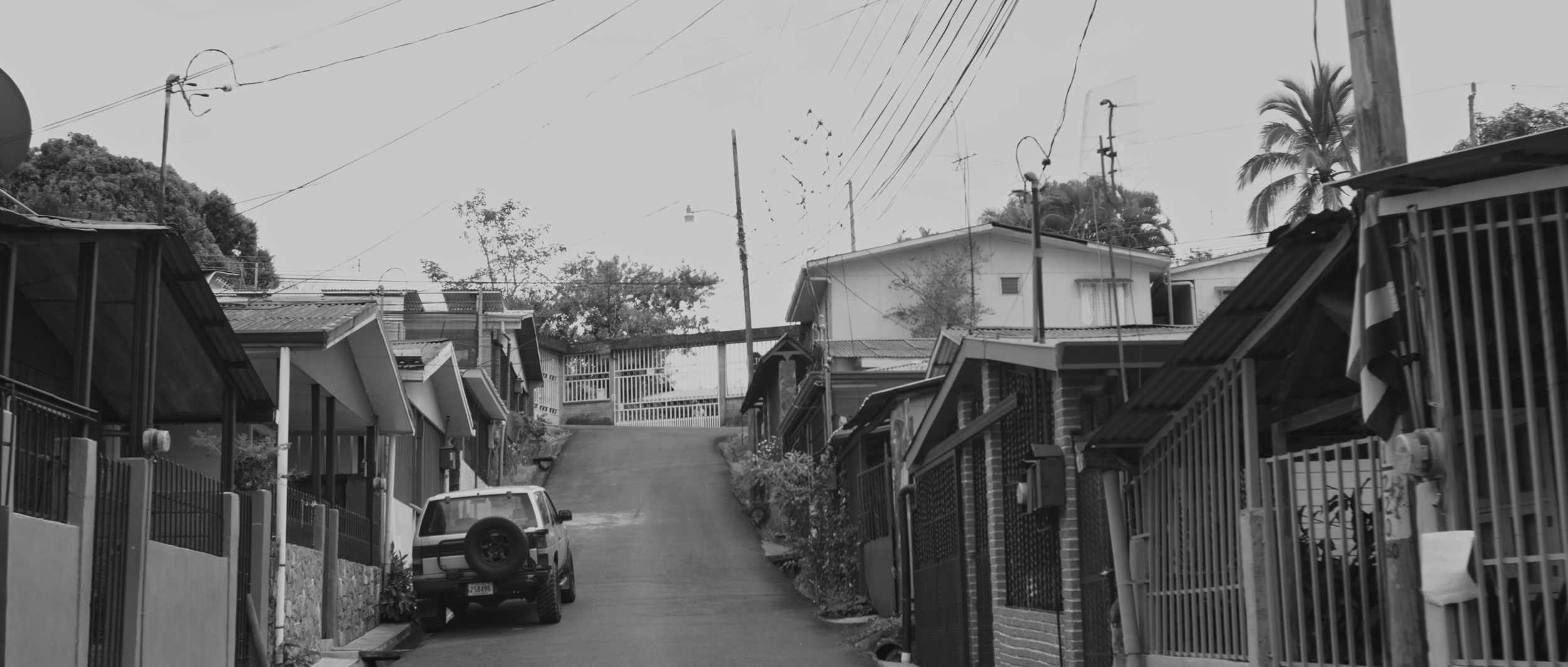El Porton
Just as some people grow up hearing stories about how their parents met, I grew up hearing about how mine came to this country—told to me as a bedtime story. My parents emigrated from Costa Rica, and their journey has always been a recurring topic in our family. My brother and I often asked them to share it again, and every retelling felt magical. Their story inspired me, even shaping school projects. Whether it was writing assignments or presentations, I always found a way to weave their journey into my work.
After graduating high school and moving into my dorm room, I began to feel a disconnection from my family. I no longer saw them every day and realized it had been a long time since I’d heard their story. It felt as though my childhood innocence was slipping away under the weight of trying to imagine what their early days in this country must have been like.
One evening, I was watching Stray Dog by Akira Kurosawa. There’s a moment in the film that explores how the innocent are shielded from the sacrifices others make to keep them safe. That moment hit me deeply—I realized my parents had done exactly that for me. They had softened the edges of their migration story, glossing over the hardships and framing it as though everything had gone according to plan.
After watching Stray Dog, I felt inspired and confident enough to tell their story in its raw, unvarnished truth—and to express it through the medium I love. I wanted to capture just a slice of the enormous sacrifices they made for me.
In Costa Rica, many homes in crowded areas are protected by portones (gates) to keep intruders out, like the one shown in the picture above. My parents opened their gates and left their home behind to pursue a dream. El Portón is a tribute to their journey—the gates they opened, the people they left behind, and the dream they chased for a better future.
